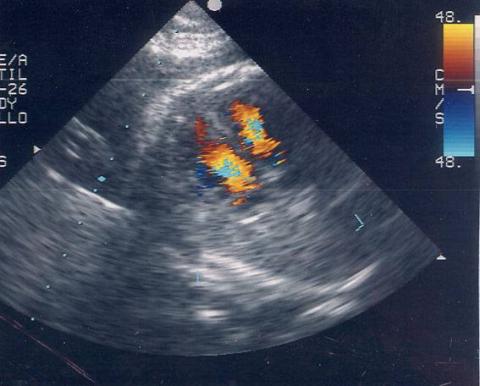AI can diagnose immunological diseases
According to a new study published in Science, a machine learning-based artificial intelligence (AI) system - called Mal-ID - can decipher an individual's history of infections and diseases in the immune system. The authors say this provides a powerful tool with the potential to accurately diagnose autoimmune disorders, viral infections and vaccine responses.

Manel Juan - IA inmuno EN
Manel Juan
Head of the Immunology Service
The press release does outline the study. It is a very relevant study on the diagnostic potential of the analysis by artificial intelligence (machine learning) of the sequences of specific lymphocyte receptors (TcR and BcR) to decipher the history of past infections and diseases of an individual's immune system. This seems to provide a very powerful tool for diagnosing autoimmune disorders, viral infections, vaccine responses, and, in general, all diseases where the immune response plays a role, which is practically all of them. The study is well documented and the conclusions will need more specific studies, but the data are very indicative that the options for the future are very high. The main limitation comes from the implementation of massive sequencing methods for the continuous diagnosis of pathological situations, which is still a technical and economic challenge in most healthcare settings. The proposal can certainly have diagnostic and patient management implications in the real world, although it needs to be ‘grounded’ in more specific cases.
José Gómez Rial - IA inmuno EN
José Gómez Rial
Head of the Immunology Department at the Complejo Hospitalario Universitario de Santiago de Compostela (CHUS), Servicio Gallego de Salud (SERGAS)
The study presented by Zaslavsky et al. represents a major breakthrough in the integration of artificial intelligence in immunological diagnosis by applying machine learning on immune cell receptor sequences to classify multiple diseases with high accuracy.
The methodology used, called Machine Learning for Immunological Diagnosis (Mal-ID), allows the identification of specific immunological signatures of infectious diseases, autoimmune diseases and vaccine responses from the immune receptor repertoire. This approach represents a paradigm shift in diagnosis, as immunological assessment has traditionally been based on the detection of antibodies and indirect biomarkers, whereas this technology takes advantage of the immense diversity of the immune repertoire to extract large amounts of data that provide highly specific information. The validation of this methodology, which has been done in a diverse set of diseases, underlines its potential as a versatile and clinically valuable tool.
The application of AI in clinical immunology opens up new possibilities to improve our diagnostic accuracy, reduce diagnostic time and personalise treatments based on the patient's immunological footprint. In this context, the use of these models to analyse immune receptor sequences is an innovative strategy that could be applied to an even wider range of pathologies, including rare diseases or other immune-based diseases. However, their implementation in clinical practice will require further studies to assess their reproducibility in different settings, as well as their integration with other immunological markers and clinical data. As AI continues to refine our ability to interpret complex immune responses, it is critical that immunologists lead its implementation to ensure its safe and effective application in clinical decision-making.
Ignacio J. Molina - IA inmuno EN
Ignacio J. Molina Pineda
Professor of Immunology and Director of the Department of Biochemistry and Molecular Biology 3 and Immunology at the University of Granada
The specific immune response is mounted because each of the cells responsible for it, the lymphocytes, carries a receptor with a unique sequence that allows it to recognise one antigen and one antigen only. When these cells recognise the antigen, they proliferate and expand, but only those that carry a receptor sequence capable of interacting with the antigen. Therefore, if it is possible to characterise and distinguish among the millions of possible receptors those that have expanded and reacted to that antigen, it could be a valuable diagnostic tool, especially in complex cases such as autoimmune diseases.
In work led by Scott Boyd, they have interrogated which sequences react in various diseases (covid19, AIDS, lupus and type 1 diabetes) and whether these were capable of diagnosing the disease. An artificial intelligence strategy based on machine learning was used to interpret the data generated by sequencing millions of cells. The diagnoses interpreted by artificial intelligence correlate perfectly with those established by clinical and laboratory methods.
Although this strategy is still a long way from the clinical setting, it is clear that it could be very useful in the future, especially when the diagnosis is ambiguous, and in any case represents an important first step in the use of artificial intelligence tools for the diagnosis of immune diseases.
Zaslasky et al.
- Research article
- Peer reviewed


